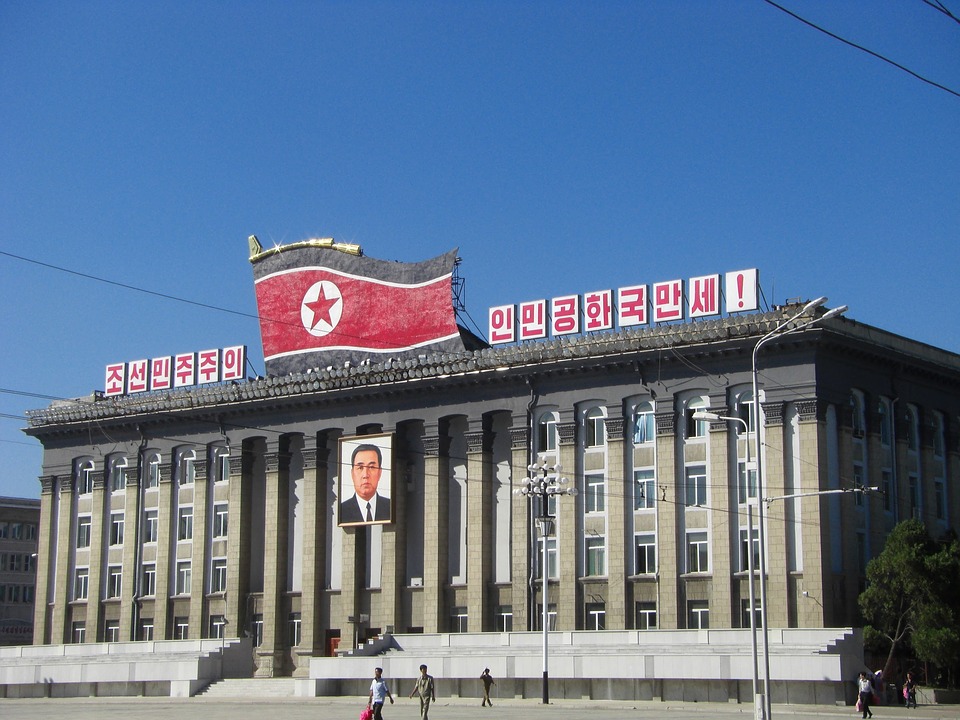North Korea is set to hold two key meetings in the coming weeks. A review of the country’s anti-epidemic policy is expected to be on the agenda for one of the meetings, even as Pyongyang claimed no new COVID-19 cases since July.
North Korean state media reported that the North Korean Supreme People’s Assembly, the rubber-stamp parliament, will be holding a meeting on September 7 to discuss the law on rural development and organizational matters.
Pyongyang has also moved to hold a national meeting this month to review its anti-epidemic policy “to confirm the new orientation.”
The meeting regarding the anti-epidemic policy comes as North Korea claimed last week that all of its patients who were suffering from fever have recovered, marking the end of the nation’s first surge of COVID-19 since its public admission of the virus back in May.
While Pyongyang has never confirmed how many people were infected with the coronavirus, around 4.77 million fever patients were completely recovered, and 74 died since late April.
KCNA reported that the decision to convene the parliament came amidst a plenary meeting of the SPA’s standing committee. During the weekend meeting, those in attendance adopted the law on medicines to set up a “strict system” to promote public health.
Other issues on the agenda included revising the aerospace development law to “further legalize the activities” in the field and adopting the law of “self-guard” to establish what is described as the “all-people self-guard system” to protect the people’s life and property, according to KCNA.
Tensions still remain in the Korean peninsula as Pyongyang continues to develop its nuclear program and military arsenal with multiple weapons and missile tests this year.
Last week, US House Speaker Nancy Pelosi travelled to South Korea and met her counterpart, National Assembly Speaker Kim Jin-pyo, where both issued a statement agreeing to support deterrence against North Korea and support its denuclearization.
“We agreed to support the efforts of the two governments to achieve practical denuclearization and peace through international cooperation and diplomatic dialogue, based on the strong and extended deterrence against the North,” said the joint statement.



 Trump Slams Super Bowl Halftime Show Featuring Bad Bunny
Trump Slams Super Bowl Halftime Show Featuring Bad Bunny  New York Legalizes Medical Aid in Dying for Terminally Ill Patients
New York Legalizes Medical Aid in Dying for Terminally Ill Patients  Israel Approves West Bank Measures Expanding Settler Land Access
Israel Approves West Bank Measures Expanding Settler Land Access  U.S. Lawmakers to Review Unredacted Jeffrey Epstein DOJ Files Starting Monday
U.S. Lawmakers to Review Unredacted Jeffrey Epstein DOJ Files Starting Monday  Ghislaine Maxwell to Invoke Fifth Amendment at House Oversight Committee Deposition
Ghislaine Maxwell to Invoke Fifth Amendment at House Oversight Committee Deposition  Nicaragua Ends Visa-Free Entry for Cubans, Disrupting Key Migration Route to the U.S.
Nicaragua Ends Visa-Free Entry for Cubans, Disrupting Key Migration Route to the U.S.  Bangladesh Election 2026: A Turning Point After Years of Political Suppression
Bangladesh Election 2026: A Turning Point After Years of Political Suppression  Anutin’s Bhumjaithai Party Wins Thai Election, Signals Shift Toward Political Stability
Anutin’s Bhumjaithai Party Wins Thai Election, Signals Shift Toward Political Stability  Trump Allows Commercial Fishing in Protected New England Waters
Trump Allows Commercial Fishing in Protected New England Waters  India–U.S. Interim Trade Pact Cuts Auto Tariffs but Leaves Tesla Out
India–U.S. Interim Trade Pact Cuts Auto Tariffs but Leaves Tesla Out  Japan’s Prime Minister Sanae Takaichi Secures Historic Election Win, Shaking Markets and Regional Politics
Japan’s Prime Minister Sanae Takaichi Secures Historic Election Win, Shaking Markets and Regional Politics  Sydney Braces for Pro-Palestine Protests During Israeli President Isaac Herzog’s Visit
Sydney Braces for Pro-Palestine Protests During Israeli President Isaac Herzog’s Visit  Trump’s Inflation Claims Clash With Voters’ Cost-of-Living Reality
Trump’s Inflation Claims Clash With Voters’ Cost-of-Living Reality  Bosnian Serb Presidential Rerun Confirms Victory for Dodik Ally Amid Allegations of Irregularities
Bosnian Serb Presidential Rerun Confirms Victory for Dodik Ally Amid Allegations of Irregularities  Trump Says “Very Good Talks” Underway on Russia-Ukraine War as Peace Efforts Continue
Trump Says “Very Good Talks” Underway on Russia-Ukraine War as Peace Efforts Continue  China Warns US Arms Sales to Taiwan Could Disrupt Trump’s Planned Visit
China Warns US Arms Sales to Taiwan Could Disrupt Trump’s Planned Visit 































